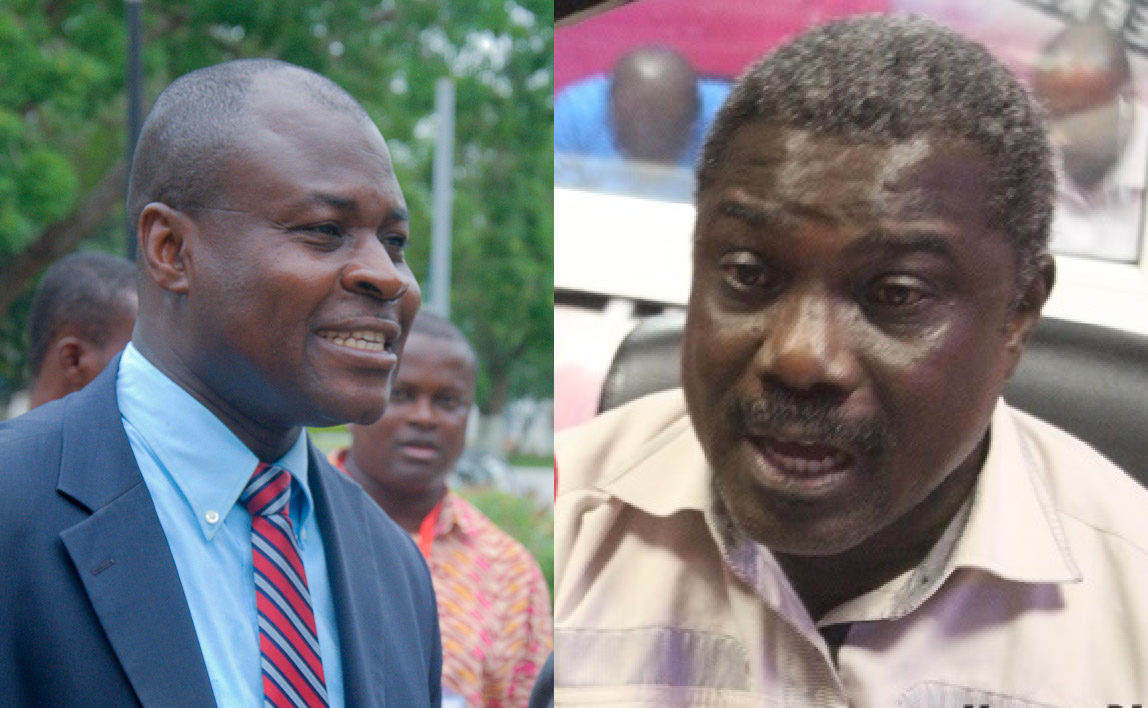
2 Bodies fight over gold export as State loses billions of dollars in revenue
Confusion has erupted between the Ghana Standards Authority (GSA) and the Precious Minerals Marketing Company Limited (PMMC) over which of them has the authority to certify gold for export.
This resulted in revenue loss of over $25 billion in gold sale to the state between 2010 and 2015, according to data from the Bank of Ghana (BoG).
The Daily Graphic has gathered that a meeting convened by the Chief of Staff, Mrs Frema Osei Opare, and a Deputy Attorney-General and Minister of Justice, Mr Godfred Yeboah Dame, failed to resolve the growing tension.
Several correspondences sighted by the Daily Graphic show a combative posture by the two government agencies, each staking claim to a sole mandate to assay and certify gold for export.
According to sources in the industry, the deduction of 0.175 per cent of the value of gold to be exported as commission to the testing agency was the source of the turf war.
Read also: 14 Tumu SECTECH students in police grip for assaulting teacher
GSA’s argument
The Director-General of the GSA, Professor Alex Dodoo, told the Daily Graphic in an interview that the GSA had set up a gold testing laboratory fitted with state-of-the-art equipment with all the standard requirements for testing gold.
“Our methods are the only acceptable standard worldwide in the testing of gold,” he said.
Relying on NRCD 173 of 1973 to buttress his point, he said the GSA was the only national statutory body responsible for standardisation, conformity assessment and metrology.
“The GSA is, therefore, a third-party government conformity assessor in the country,” he emphasised.
He cited a BoG report that showed how the country was losing several billions of dollars in gold revenue due to lax and leakages in gold export processes.
The report indicates that between 2010 and 2015, the value of gold exported out of the country was $25.28 billion, out of which only $3.38 billion, constituting 13.58 per cent, was repatriated into the country.
It further reveals that small-scale licensed gold exporters (LGEs) exported gold amounting to $7.36 million.
“We are also losing all the benefits derived from the by-products of gold when it is refined in the country and so we are losing huge revenue in that regard,” he suggested.
The BoG report, based on the suggestions of the LGEs, recommends an independent body such as the GSA to test gold for export, since the PMMC is also into the marketing and export of gold.
PMMC’s rebuttal
However, the Director of Finance at the PMMC, Mr Bernard Anang, sharply rebuffed Prof. Dodoo’s argument and insisted that his outfit would not relinquish the mandate of gold testing to the GSA.
He said the PMMC had been given the mandate to certify and test gold since 1989.
Mr Anang is also relying on the Minerals and Mining of 2012, which gives the Minister for Lands and Natural Resources the authority to appoint the PMMC as the designated testing and certification authority of gold.
The company has come under fire for being a referee and a player, competing with LGEs in the marketing and export of gold and at the same time testing and certifying gold for export.
But Mr Anang explained that the PMMC was no longer into the marketing and export of gold.
“We are no longer into the marketing and export of gold but fully concentrating on the testing of gold, especially for small-scale gold producers,” he said.
He also pointed to PNDC Law 219 of 1989 to back his claim that the PMMC was the solely recognised body to test for the quality of gold for export.
Chamber of Mines agreement
The confusion began when the GSA and the Chamber of Mines signed a memorandum of understanding (MoU) to test the quality of gold refined in the country.
It was to enhance and strengthen technical cooperation in the fields of standardisation, metrology and conformity assessment.
The move was to make the country retain the several by-products of gold when it is refined, which hitherto were lost to the refining companies in South Africa and Europe.
PMMC’s warning
A day later, the Managing Director of the PMMC, Dr Kwadjo Opare-Hammond, rebutted that and warned that from January next year, gold produced by large-scale miners would have to be graded, valued and tested by the PMMC to determine its ingredients and quality before being allowed to be exported.
He said although the company had already been grading, valuing and assaying gold products of small-scale miners since 1989, it intended to scale up that role to cover large-scale miners.
War of letters
A letter he signed, dated October 4, 2017, to the Board Chairman of the GSA, Dr Akwasi Acheampong, stated in part: “We are, therefore, not surprised that the new board of the GSA has been misinformed to come up again with an issue which had been resolved”.
The letter concluded: “We wish to state unequivocally that this attempt to take over the core functions of the PMMC will not in any way be countenanced.”
The letter was in response to an earlier one from Dr Acheampong asking that all LGEs should ensure that their gold was certified by the GSA.
“We wish to inform all licensed gold exporters to henceforth ensure that gold earmarked for export is assayed and certified by the GSA,” the letter had stated in part.
